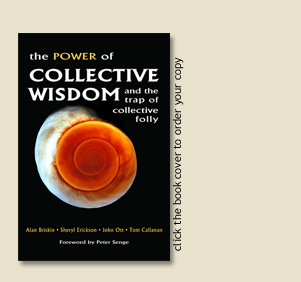 |

From the Foreword, by Peter Senge:Few words have a longer historical association with leadership than wisdom, and few have less credibility in that association today. What has happened? First, it seems that we have lost our consensual definition of what wisdom actually is. In earlier eras, when elders had revered places in community, we had a way of understanding wisdom through example. The elders grounded us in appreciating the importance of perspective, in seeing things from multiple points of view, in considering what the past could teach us about the future, and in reminding us that many things we might think were our own unique problems had in fact been faced by others before and we should meditate on what we could learn from that. Second, in an era that has little deep concern about the future, wisdom has little functional value. For wisdom has always been concerned with balancing the short term and the long term—of seeing possible longer-term consequences of our actions in and for the future. But for most of us most of the time, the future does not really
exist. Indeed, an important feature of the modern era has been the
marginalization of the future. The future has become an abstraction
rather than a reality with which we are emotionally connected. An
economist’s prediction. A futurist’s for the full text, download the pdf (116k) |
 |
 |
 |
 |
 |
 |
 |